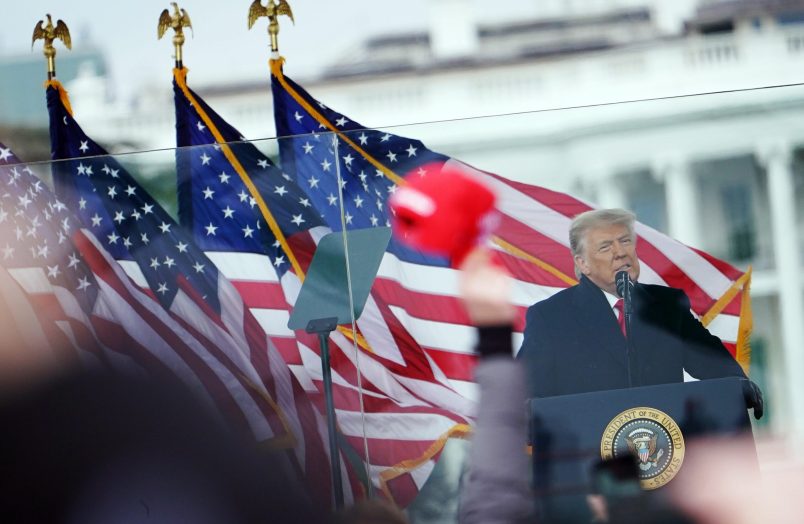The Senate acquitted former President Trump for his role in the Jan. 6 insurrection against Congress, with only seven Senate Republicans joining 50 Democrats in favor of conviction — well short of the 67 vote threshold.
Saturday’s vote brings to an end the five-day impeachment trial, during which the House managers argued that Trump was responsible for the mob that breached the Capitol while Congress was certifying his electoral loss.
Their arguments convinced the handful of Republicans who joined the Democrats in voting to convict, including some Republicans who had previously shown skepticism about the constitutionality of the trial.
Even though Trump was acquitted, Saturday’s vote was the largest and most bipartisan vote in favor of conviction in a presidential impeachment, Majority Leader Chuck Schumer (D-NY) noted in remarks after the vote.
“I salute those Republican patriots who did the right thing. It wasn’t easy, we know that,” Schumer said. “Let their votes be a message to the American people. Because, my fellow Americans, if this nation is going to long endure, we, as a people, cannot sanction the former president’s [conduct], because if lying about the results of an election is acceptable, if instigating a mob against the government is considered permissible, if encouraging political violence becomes the norm, it will be open season, open season on our democracy.”
Several Republicans who voted against convicting the former president justified those votes on the basis of a procedural argument, claiming that the Senate doesn’t have the authority to convict a former government officer who is no longer in office. That rationale — disputed by a broad spectrum of legal scholars — was perhaps an implicit concession that Trump’s conduct was indefensible on the merits.
House managers warned that by refusing to convict Trump because of the timing of the trial, the Senate would create a “January exception” giving presidents a free pass to commit high crimes and misdemeanors at the end of their terms.
They said that impeaching Trump was not about retroactive punishment but necessary to protect the country going forward.
“Two hundred and thirty-four years from now, it may be that no one person here among us is remembered,” Rep. Madeleine Dean (D-PA), a House impeachment manager, said during closing arguments Saturday. “And yet what we do here, what is being asked of each of us here in this moment, will be remembered.”
The Republicans who voted in favor of conviction were Sens. Richard Burr (R), Bill Cassidy (LA), Susan Collins (ME), Lisa Murkowski (AK), Mitt Romney (UT), Pat Toomey (PA) and Ben Sasse (NE).
Burr’s guilty vote was perhaps was the biggest surprise, as he had voted previously that the trial was not constitutional.
In a statement Burr, who is not running for re-election in 2022, said the “evidence is compelling that President Trump is guilty of inciting an insurrection against a coequal branch of government and that the charge rises to the level of high Crimes and Misdemeanors.”
“By what he did and by what he did not do, President Trump violated his oath of office to preserve, protect, and defend the Constitution of the United States,” Burr’s statement added.
A Sasse statement explaining his guilty vote said that Trump’s ” lies had consequences, endangering the life of the vice president and bringing us dangerously close to a bloody constitutional crisis.”
“Each of these actions are violations of a president’s oath of office,” Sasse said, later adding that Congress “needs to respect itself enough to tell the executive that some lines cannot be crossed.”







And the gutless Fks voted exactly as they said they would. No ‘open minds’ there. They are egregious.
A sad, sad day for America.
They are on record.
That record cannot be altered or erased.
I know of 43 republicans who should be turned into dust and I am being nice.
totally pathetic.
have to add: thanks Susan, you got away with it. slick as always
you mean they didn’t even bother to debate the evidence?
and who was the seventh GOP vote to convict? (It was too depressing for me to watch after the 'we’re not defending democracy any longer than absolutely necessary" stipulation nonsense)